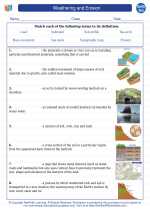Dust in Earth Science
Dust is a collection of small particles that can be found in the Earth's atmosphere and on the surface. These particles can be composed of a variety of materials including soil, pollen, skin cells, and other organic and inorganic matter.
Formation of Dust
Dust can be formed through a variety of natural and human-induced processes. Natural processes include erosion of rocks and soil, volcanic eruptions, and the decay of organic matter. Human activities such as agriculture, construction, and industrial processes can also contribute to the generation of dust.
Properties of Dust
Dust particles vary in size, composition, and density. They can range from fine clay particles to larger sand grains. The composition of dust can also vary depending on the location and source of the particles.
Effects of Dust
Dust can have both positive and negative effects on the environment and human health. In the atmosphere, dust can contribute to the formation of clouds and precipitation. However, high concentrations of dust can also lead to reduced air quality and respiratory issues in humans and other organisms.
Study Guide
- What are the main sources of dust on Earth?
- How does dust contribute to the formation of clouds?
- Explain the impact of dust on human health and the environment.
- Describe the processes involved in the formation of dust particles.
- Discuss the role of dust in soil formation and erosion.
◂Earth Science Worksheets and Study Guides High School. Weathering and Erosion
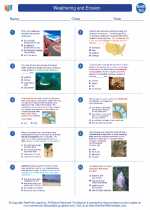
 Worksheet/Answer key
Worksheet/Answer key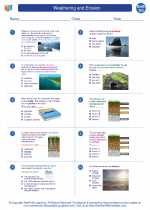
 Worksheet/Answer key
Worksheet/Answer key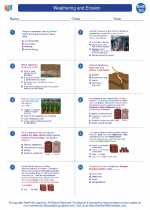
 Vocabulary/Answer key
Vocabulary/Answer key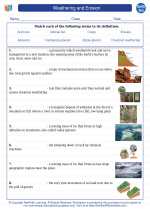
 Vocabulary/Answer key
Vocabulary/Answer key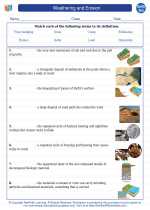
 Vocabulary/Answer key
Vocabulary/Answer key